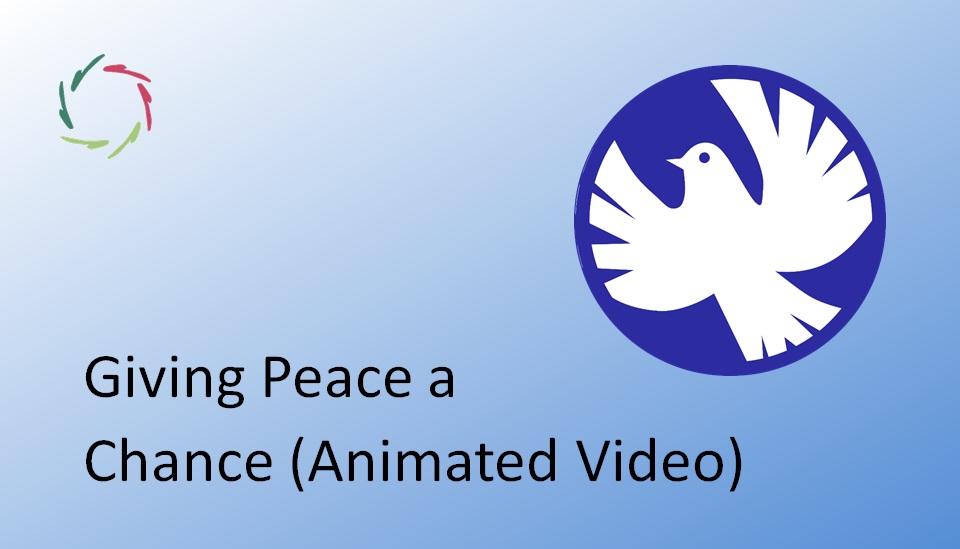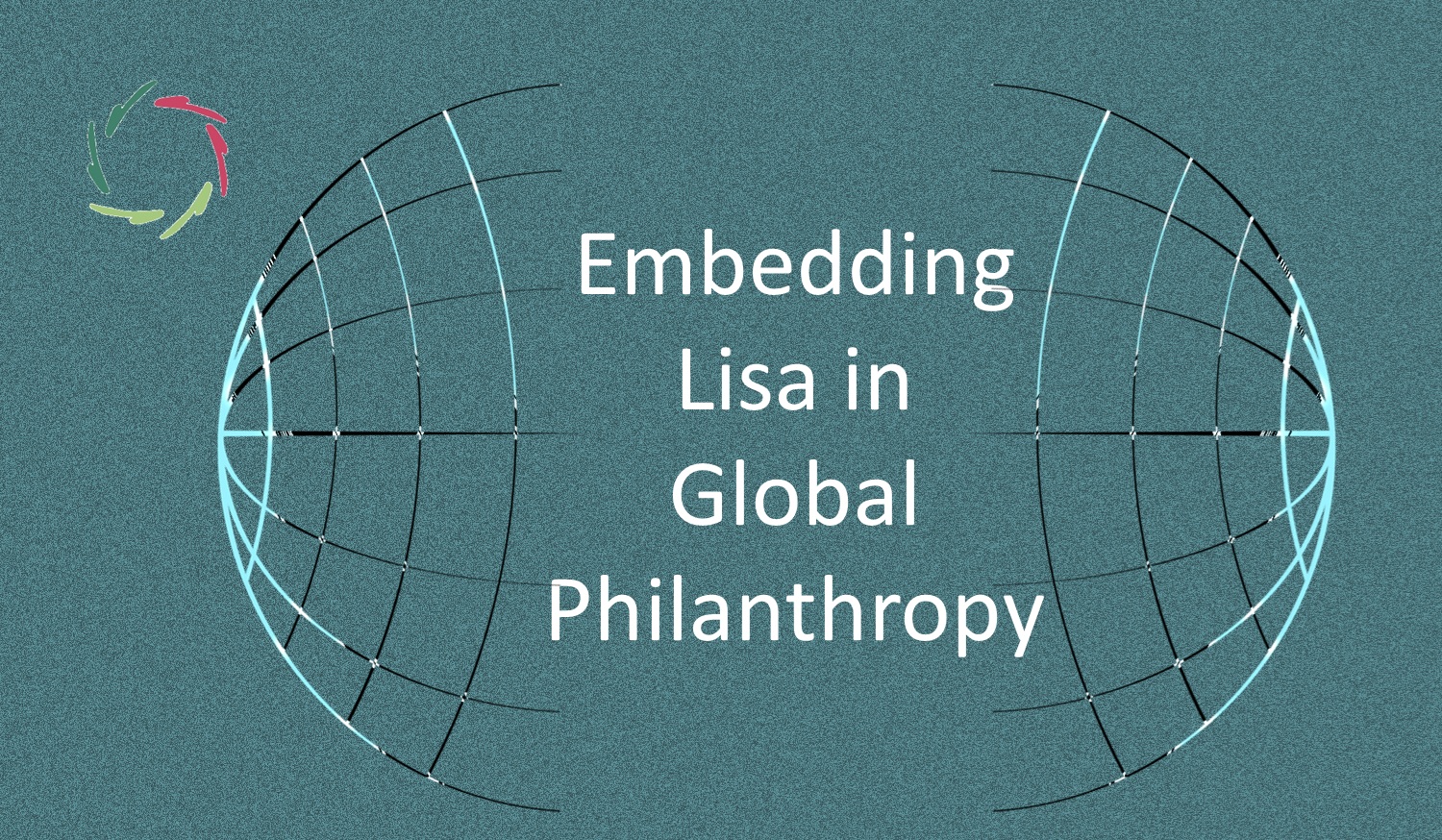Giving Peace a Chance

In this video, I bring you some AURELIS-congruent ideas about peace, on the occasion of World Peace Day 2022. [animated video – 13:18′]
If you have feedback, please let us know.
Here is the full written text.
Hi, my name is Jean-Luc Mommaerts. I am a physician with a Ph.D. in Medicine and a master’s degree in Cognitive Science and Artificial Intelligence.
Today I will talk about peace on the occasion of World Peace Day 2022. You find the full transcript of this talk on the AURELIS blog-wiki, in the animated video category.
[1] The central theme of this talk is that, to the core, peace starts inside. Inner peace is thus the necessary ground for sustainable outer peace.
Firstly, it is crucial to know what inner peace is not:
- Inner peace is NOT equal to using the correct ‘peace words.’
- It is NOT equal to acting peacefully merely at the surface level.
- It is NOT equal to forcefully repressing aggression or playing the blame game.
- It is NOT equal to forcing kindness from others or oneself.
Then, what is it? Inner peace is primarily about how you communicate with yourself – also in-depth – to become an ever more harmonious person, finding human growth and happiness that cannot but spontaneously overflow to others in due time.
This statement makes YOU responsible. It also makes you powerful if you stand by it. Think of the saying by the 20th-century psychiatrist Carl Gustav Jung: Wars don’t start between countries but within individuals. This is not about guilt. Even if you can do little or nothing toward inner or outer peace, it is still an attitude that may prepare for significant changes. Therefore, it’s OK just to keep trying.
[2] This animated video is part of the AURELIS project. AU-REL-IS is an acronym of three elements that are crucial for attaining inner peace. Going deeper into them:
- ‘AU’ stands for AUtosuggestion. This is about suggesting or inviting inner growth. There is a direction in this toward non-aggression. Things happen spontaneously from inside, congruent and peace bound.
- ‘REL’ stands for RELaxation. This is about letting tensions dissolve from the inside out toward loving oneself and others as total persons. The result is an inner peaceful attitude.
- ‘IS’ stands for Inner Strength. This is a combination of strength and gentleness. It is about daring, about standing up for peace and getting beyond any personal anxiety that may lead to aggression.
[3] For lasting peace, it is needed to go from empathy to Compassion in the following sense.
Empathy is generally related to a relatively small circle of, for instance, family or friends, or some inner circle of collaborators, and a warm glow of inner joy. There is nothing wrong with these, of course! But it’s not enough for peace on earth. Even more, in some unfortunate circumstances, small-circle empathy can lead people toward aggressively defending their circle against the enemy ― who does the same vice versa. This way, misguided or even manipulated empathy may heighten the chance of war.
I use the term Compassion for something different. This grows on top of empathy. You can find more about it on my blog ‘Compassion, Basically’. It encompasses small-circle empathy but leads to something even more profound and broader. It relates to a wider circle ― eventually a global one. Also, Compassion combines rationality and depth in a challenging synthesis. Through human depth, Compassion reaches the subconceptual level of the human mind, the heart or soul if you like. Through rationality, Compassion is also concerned with the conceptual level of mind. Deeper into both, depth and rationality come together. Heart and rational mind become one. Only this is compatible with lasting peace. Herein also lies a dual Compassionate striving to relieve suffering and foster human growth. Relentlessly striving towards this synthesis is a Compassionate goal and the AURELIS vision.
[4] Pragmatically, and in many cases unavoidably, the Compassionate path toward peace goes through Deep Diplomacy. Of course, this starts with talking. To keep talking is the one thing that should be enforced over the entire duration of any war. But Deep Diplomacy is about much more than talking. It is transformative. It does not just lead to compromises at the surface level. It is transformative in the sense of learning something profound from each communication. This should be seen as an immense and immensely significant challenge. Taking this challenge is necessary for lasting peace.
At what level does your enemy have the same needs as you? Finding this is a matter of Deep Listening and Open Leadership. It is the level of YES ― but yes to what exactly? An excellent exercise for any diplomat is continually posing yourself the following questions: “Can you take the same look at yourself as at your enemy?” ― At what level can both of you find each other’s humanity? ― How can the other learn from you? ― What can the other teach you?
In the end, war is ALWAYS a failure of diplomacy. Indeed, you need two to tango, but at least you, as a diplomat of any sort, should keep inviting. That doesn’t make one weak if done firmly and gently, with little inner aggression or anxiety. Remember inner Strength. Moreover, Deep Diplomacy can be supported by an entire population. It is a cultural thing, which leads us to the following.
[5] Peace is profoundly related to many cultural fields, including ones that aren’t straightforwardly associated. Medicine – being my turf – is a major example.
One can put medicine of war versus medicine of peace. Most Western medicine is of the former kind. In medicine of war, symptoms and diseases are the enemies, and there is head-on fighting against these with available weapons, such as medical drugs. Not surprisingly, many groups of medicines start with ‘anti,’ such as antidepressants, anti-emetics, etcetera. And what do painkillers do?
While medicine of war is reasonable in several fields, it’s not evidently so in psychosomatics. A bodily symptom may be seen as an enemy, but in psychosomatics, this so-called enemy eventually is profoundly oneself. People should not fight themselves but listen to the calling from inside, which is a psychosomatic symptom. Medicine of peace is about getting beyond the symptom, in the direction of yourself, in inner peace with yourself. As in diplomacy, here too, Deep Listening can prevent much aggression.
This makes a big difference when many people are treated in medicine of war versus peace. Eventually, this influences an entire culture ― if not the world. As said, medicine is just one example. The same counts for other domains, such as education or jurisdiction. Therefore, lasting peace is a profoundly cultural issue.
[6] So, in several ways, we can give peace a chance already. In the end – at least, if humanity survives – there WILL inevitably be lasting peace on earth. This is no utopia. It is a rational certainty. Artificial Intelligence can help us IF it is Compassionate. We can also strive for that.
At the same time, this certainty of eventual peace on earth rightfully acts as an attractor, a kind of autosuggestion. It is more than wishful thinking if it is felt from deep inside. Of course, this is a challenging job ― as autosuggestion always is.
This certainty also definitely means that it is worth striving for. There is no reason to wait for others, a boss or leader, an enemy, perfect conditions, or anything else. Each person can start evolving towards this peaceful future NOW.
Will you join us?
[7] These are some blogs that might interest you further:
- The End of War
- Is Any War Worth It?
- Wars ARE Failures
- Compassion, Basically
- Deep Listening
- Open Leadership
- What Deeply Drives Putin?
- Open Leadership: Listening to Putin
- How to Unite People from Different Cultures
- Daring to Be Vulnerable
You find the hyperlinks at the end of the transcript of this animated video.
As you have reached this point, I thank you for your interest. Have a peaceful day.


